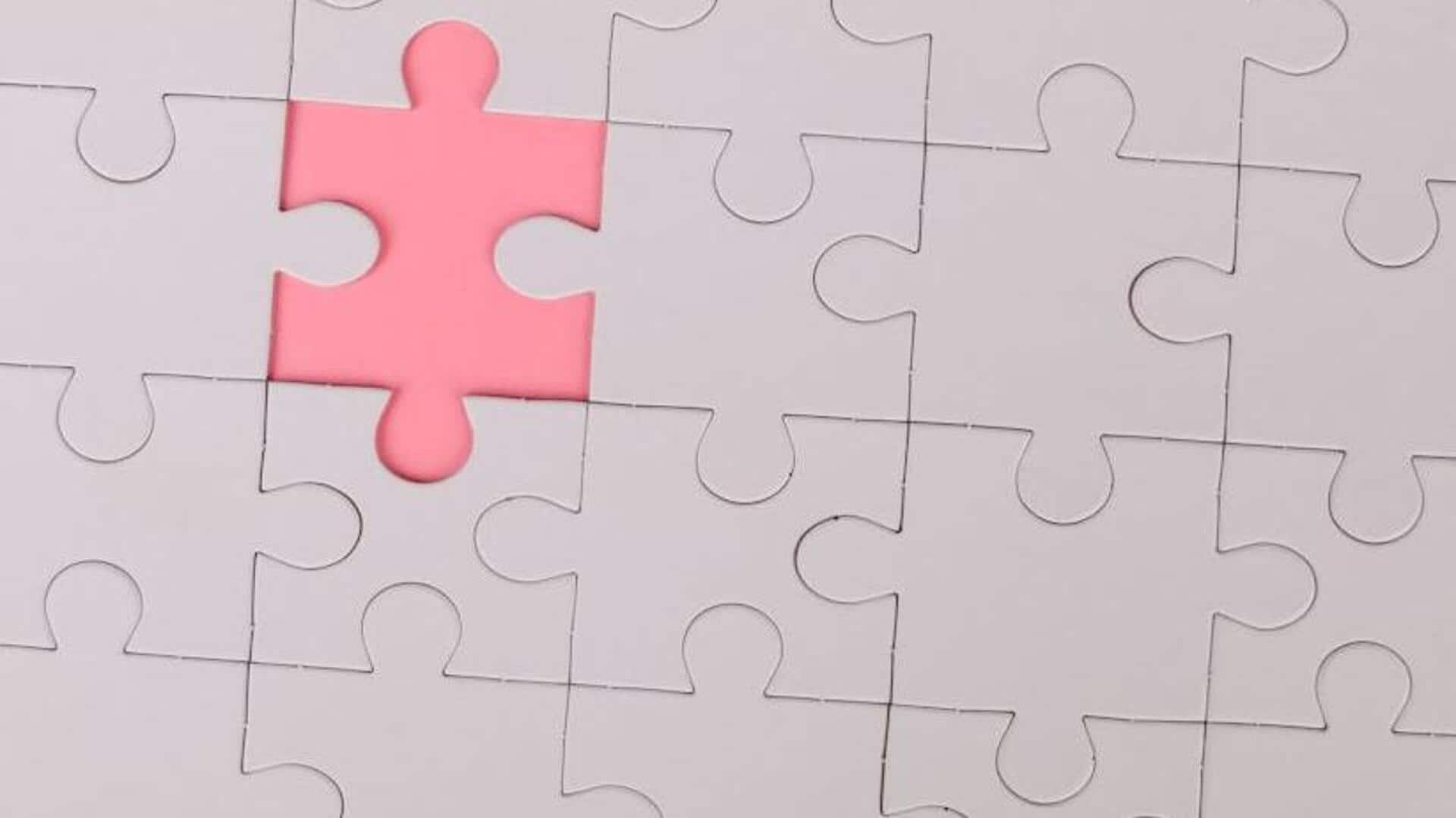
Adopting a daily crossword habit for cognitive sharpness
What's the story
Crossword puzzles aren't just a fun pastime; they're a mental workout with the power to supercharge your brain.
Making it a daily habit can significantly boost your memory, vocabulary, and problem-solving skills.
This article delves into the benefits of making crosswords a part of your daily routine. Plus, we'll share tips on how to dive into this fun and rewarding world.
Beginner level
Start with easy puzzles
If you are a crossword newbie, start with the easy ones.
This approach boosts confidence and hones problem-solving abilities without unnecessary frustration.
Plenty of newspapers and online platforms provide puzzles catering to different skill levels. Starting with the easy ones ensures a positive experience.
Once you gain some comfort, you can then progressively attempt more difficult ones, further refining your abilities.
Consistency
Make it a routine
Making crossword puzzles a part of your everyday routine is essential to maximizing the cognitive benefits.
Set aside a special time each day for this activity, whether it's with your morning coffee or as a relaxing ritual before bed.
Consistency not only assists in establishing a new habit but also guarantees that you're regularly challenging your brain.
Tools and aids
Use resources wisely
Don't be afraid to use dictionaries or the internet when you're stuck on a word or clue.
Seeing these tools not as cheats but as aids can help you learn new words and concepts, making the experience more enjoyable.
Eventually, you'll find yourself reaching for those aids less and less as your vocabulary grows.
Social aspect
Engage with others
Crossword puzzling doesn't have to be a solitary activity; engaging with friends or family members who also enjoy crosswords can make it even more enjoyable.
Sharing clues, discussing strategies, or even competing against each other adds an interactive element that can further stimulate cognitive function and make the habit stick.
Milestones
Track your progress
Maintaining a record of the puzzles you solve and observing a gradual increase in difficulty level can be immensely satisfying.
Acknowledge achievements like finishing your first medium-difficulty puzzle or completing a puzzle without any help.
Progress tracking not only offers concrete proof of advancement but also fosters motivation to tackle increasingly challenging puzzles.